‘Heartbroken, ashamed, embarrassed’: Cate Campbell opens up about her difficulty farewelling swimming
Olympic swimming legend Cate Campbell has opened up about how she fell into a spiral of disordered eating as a teenager where it was a constant battle to have “more than a carrot for dinner”.
QWeekend
Don't miss out on the headlines from QWeekend. Followed categories will be added to My News.
Spicy margaritas. Catching up with friends on a Friday night. Sleeping in on a Saturday morning. These are some of life’s simple pleasures that Cate Campbell is allowing herself to enjoy for the first time as she embraces her new world.
A world where her mind and body are no longer being pushed to their limits. A world without pressure and obsession. A world where she can finally relax. A world in which she is no longer an elite swimmer.
The four-time Olympian, 32, retired from competitive swimming in June last year, after a stellar 20-year career in the pool. The months since Campbell’s final race last year have been a whirlwind of emotion, and she’s asking herself: What am I going to do now?
For the Brisbane-based swimmer, the answer lies in trying different things, finding new hobbies and learning new skills. She’s doing casual television work, plans to become a Lifeline phone worker and is studying a course with the Australian Institute of Company Directors. More than anything, though, she is discovering how to live again. “Having a whole weekend is a revelation,” says Campbell, a look of wonder filling her eyes. “I have never, ever, had a full weekend … to have two full days where I can do whatever I want is wild.
“There are no alarms on Saturday morning and when I wake up, I make myself a cup of coffee, and then I take my coffee back to bed.”
She laughs, aware of how mundane this sounds. But Campbell has never known mundane, because to be a world-class champion, she could never afford such luxuries.
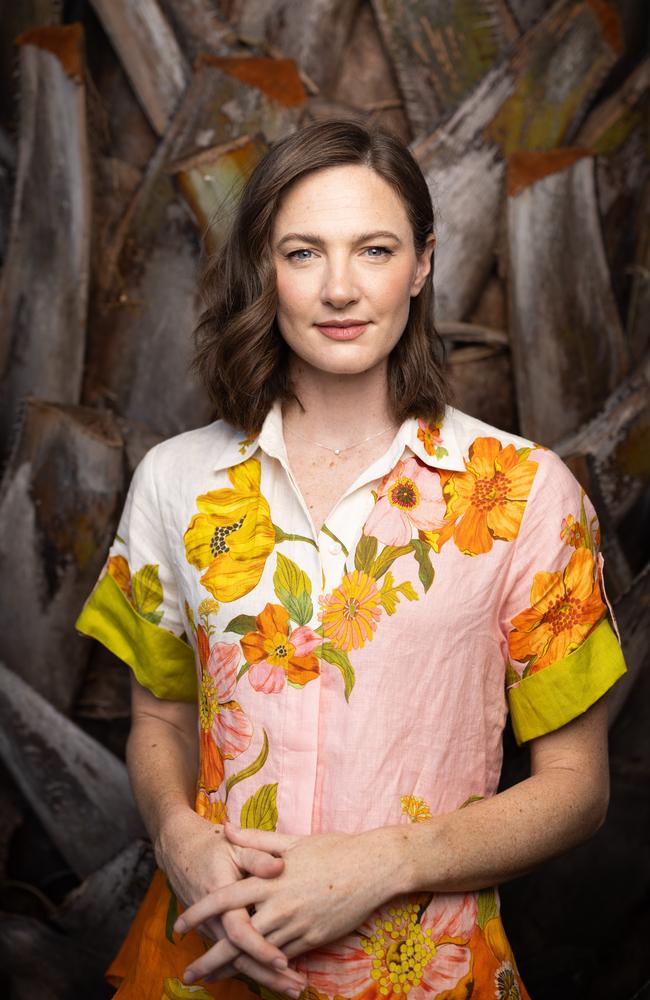
Campbell’s life was built on sacrifice, discipline and laser-focus commitment to become one of Australia’s greatest and most-decorated swimmers.
The 50m and 100m sprint specialist has achieved the extraordinary: four Olympics, where she won eight medals (four gold); six Commonwealth Games gold medals; 37 major international medals (23 of them gold); and multiple world records. Campbell is also one of the best relay swimmers Australia has produced, helping Australia to Olympic gold in the women’s 4x100m freestyle relays in London
in 2012, Rio in 2016 and Tokyo in 2021, where she was also part of the winning 4x100m medley relay.
She was the captain of the Australian swim team for the Tokyo Games, as well as one of Australia’s flag bearers for the opening ceremony. Her speed, resilience and longevity in the sport have made her one of the greats of sprint swimming. Campbell still holds the world record she set in 2017 in the 100m freestyle in the Women’s Short Course (50.25sec).
Out of the water, she’s just as powerful. For years she served on the Australian Olympic Committee Athletes’ Commission before becoming the chair in 2022.
She has a Bachelor of Communication from Queensland University of Technology and has spoken out about body image and women’s health issues in sport and mental health, sharing her experience with depression.
She is also a passionate advocate for sun safety after she was diagnosed with a stage 1 melanoma in 2018. She became an ambassador for Melanoma Institute Australia and is skincare company Avene’s suncare ambassador.
Campbell has redefined what it means to be an athlete. She is a fierce and gracious competitor, an inspirational leader, passionate and vulnerable advocate and a respected and beloved Australian.
This is why, as a nation, we caught our collective breath, watching as her career ended in crushing heartbreak.
At the Australian Olympic trials in June last year in Brisbane, Campbell failed to qualify for what would have been her fifth Olympics. She missed out on making the 100m freestyle final by one-hundredth of a second, and placed seventh in the 50m freestyle final. It became the final race of her career.
Campbell broke down in tears in the pool, her fellow competitors comforting her in the water. It wasn’t the way it was supposed to happen. She was supposed to go on and make history as the first Australian to swim at five Olympics, and retire under the lights of Paris. But in the brutal world of elite sport, dreams that take a lifetime to prepare for are crushed in seconds.
Almost a year on, Campbell still wrestles with an avalanche of emotion, and as we sit at a cafe at Brisbane Powerhouse, she shares the initial torment she felt. “I was heartbroken and I was devastated,” Campbell says. “To be honest, I felt foolish. I felt like a fraud. I felt like a failure. I felt like I had wasted the past two years of my life training to this point.
“I was ashamed, I was embarrassed, and it was all of those things because that’s what happens when you’re out there and you do something vulnerable and it doesn’t work out.
“Then there was the disappointment that this is the end.”
She pauses, then begins to smile. “If I’m honest with myself, it was as much of a relief as it was a heartbreak,” Campbell says. “There was relief that I could let go and stop fighting.”
She admits she knew it was the end before the race even started.
“I knew from my warm-up – I knew deep down inside myself, even though I was telling myself it was going to be OK.”
Campbell still finds it tough to face. She hasn’t looked at footage from her last race, and has struggled to be in a pool since.
But for now, she’s found some comfort knowing where it played out.
“It was my home swimming pool,” Campbell says. “It’s where I competed for the first time when I was nine years old. I broke the world records in that pool. I trained for many years in this pool, and my friends and family and partner could be in the crowd. Obviously the fairytale ending was Paris, but if you couldn’t have that, this was the next best thing.”
Chatting for hours for this interview, Campbell is relaxed and happy. She’s enjoying time at home in Morningside, in Brisbane’s east, with her partner of seven years, Adam Kerr, a fly-in, fly-out geotechnical engineer.
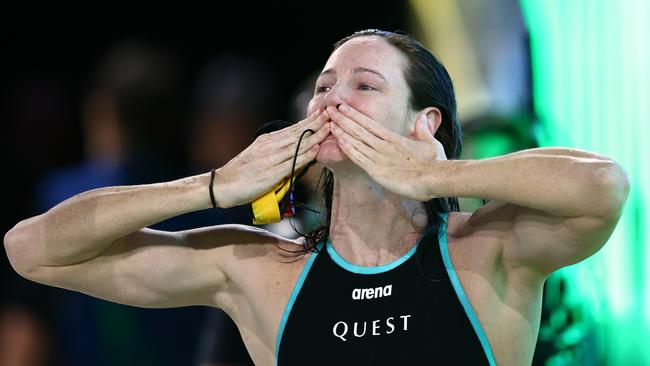
Campbell has been busy jumping between commitments including TV appearances and joining in the conversation around the Brisbane 2032 Olympics.
Her new-found freedom, however, has faced some challenges. Campbell ruptured her ACL on her first-ever skiing holiday in Japan in January. She’s facing a nine-to-12-month recovery after having surgery. It’s disrupted her post-retirement plans to pick up new activities like pilates and tennis.
Instead, she’s spending time playing the piano, distracting her busy mind from dwelling on a feeling of disquiet she can’t – and says may never – shake.
“When I look back on my swimming career at the moment, I see all my missed opportunities as opposed to my achievements,” Campbell says.
“It’s the full stop, the closing of the chapter in the book on a career which I’m very happy with and very proud of, but there are regrets and mistakes that you secretly hoped that you could have changed … it’s the complete knowledge that part of my life is over.”
The disappointment of not winning an individual Olympic gold medal still haunts Campbell. The chance slipped through her fingers at the Rio Olympics in 2016.
Campbell went in as the front runner and the world record holder in the 100m freestyle, but came sixth. Nine years on, it remains her biggest regret.
“It’s just something that I’ve really wanted and it felt like it was within my grasp, and I let it go,” she says. “Have I forgiven myself? Yes. Have I accepted it? Yes. Do I regret it? Absolutely.
“I will never, ever be able to rectify that; I’ll never have that chance again.”
The years following Rio led to an extreme personal journey, during which Campbell found a strength she never knew she had.
“I used that moment to make positive changes to my life, as opposed to letting it stop me,” she says. “I nearly retired from the sport – I left it, and I didn’t want anything to do with it. But I came back.”
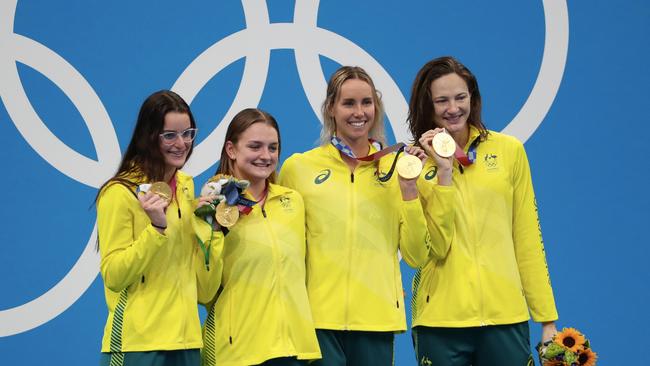
What followed wasn’t a glory story of redemption but an athlete on a journey of belief. So in Tokyo in 2021, when Campbell took bronze in the 100m freestyle, she felt like she had won. “That bronze medal to me represents overcoming so much and being able to deliver my best performance under the bright lights in the moment of pressure when it mattered, which is what I hadn’t been able to do in Rio,” she says.
There was an even greater significance for Campbell, because of what she overcame to get there. In the months leading up to the Tokyo Games, Campbell was diagnosed with depression and – just five weeks out – she was prescribed antidepressants. It was, she says, one of the hardest and loneliest periods of her life.
“There was a lot going on and I just reached a place where I felt like I couldn’t cope any more,” says Campbell, who stayed on the medication for a long time but is off it now. “It took me way longer than it should have to reach that point where I sought help. I’ve now realised that being unwell is not a weakness.”
We’ve watched the wins, losses and the medals, but what we haven’t been able to see is the most powerful part of Campbell’s story: her unshakeable resilience and refusal to quit.
Few could match the intensity of Campbell’s commitment to a sport where the difference between success or failure is defined by razor-thin margins.
“In the 50m freestyle, my time in 16 years has improved by 0.3 in a second,” she says. “I’ve had less than a 2 per cent improvement in my race time in 15/16 years.” It demonstrates her tenacity and how stretched her body was for a long time.
Campbell is only now realising what it’s like to wake up in a body not constantly in pain.
Throughout her career, she battled back from countless physical setbacks, including seven swimming-related surgeries, with two shoulder and two hip operations, two hernia repairs and neck and back injuries.
In 2018, her health was dealt another blow, when she was diagnosed with a melanoma. But Campbell is grateful it was caught early, and hopes to influence Australians to get regular skin checks.
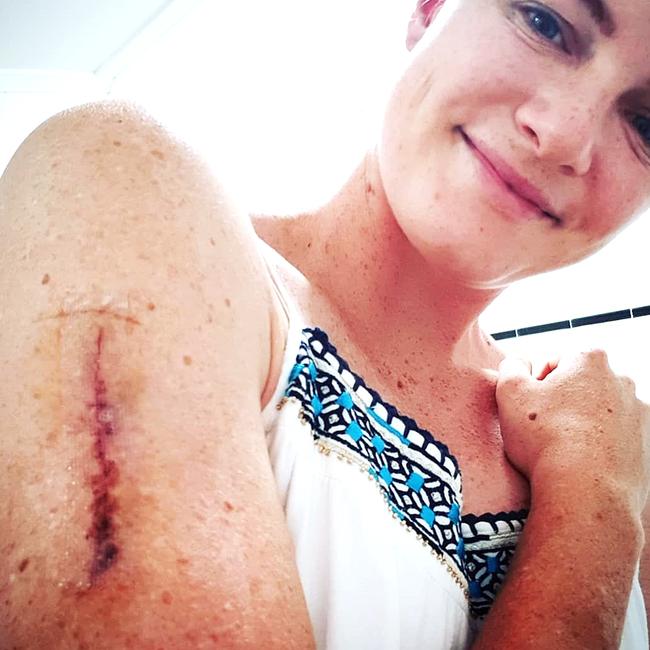
“It changed the way that I thought about sun exposure and also just around helping other people to see that,” she says.
Just as her body has been pushed to its limits, so has her mind, as she channelled everything into competitive swimming from the age of nine.
Every element of Campbell’s life was calculated by what was best for her career and what would help her perform. Her mind became a constant frenzy of conflicting voices.
“I had this little swimmer devil who would sit on my shoulder, and every decision I made in my life, I would bounce off this little devil,” she says.
“Am I getting enough to eat? Am I getting enough sleep? What am I doing? Where am I going? Who am I doing it with? Am I going to be exposed to germs? Am I going to be too tired?”
Campbell describes how her mind would flip and torment her, but as she does, there is now a smile of acceptance.
She knew this was part of the deal, because with profound discipline, came results.
“Every decision that you could and you would make in a day, I would put up against what is best for my performance,” she says.
“It dictates your whole life. When those win-lose margins are so fine, you absolutely need to do that.”
The control breeds champions but it can also breed demons.
It’s a lesson Campbell learnt early, when she made the Australian swim team at 16 and was thrust into the world of elite sport.
She was freakishly talented, bright and committed to pushing herself to be the best.
But she was also young and was exposed early to a darker side of the world that would impact the rest of her life.
“Growing up in a pair of swimmers in front of the world’s media, it was difficult thing to navigate and probably has left lasting scars on my psyche,” Campbell says.
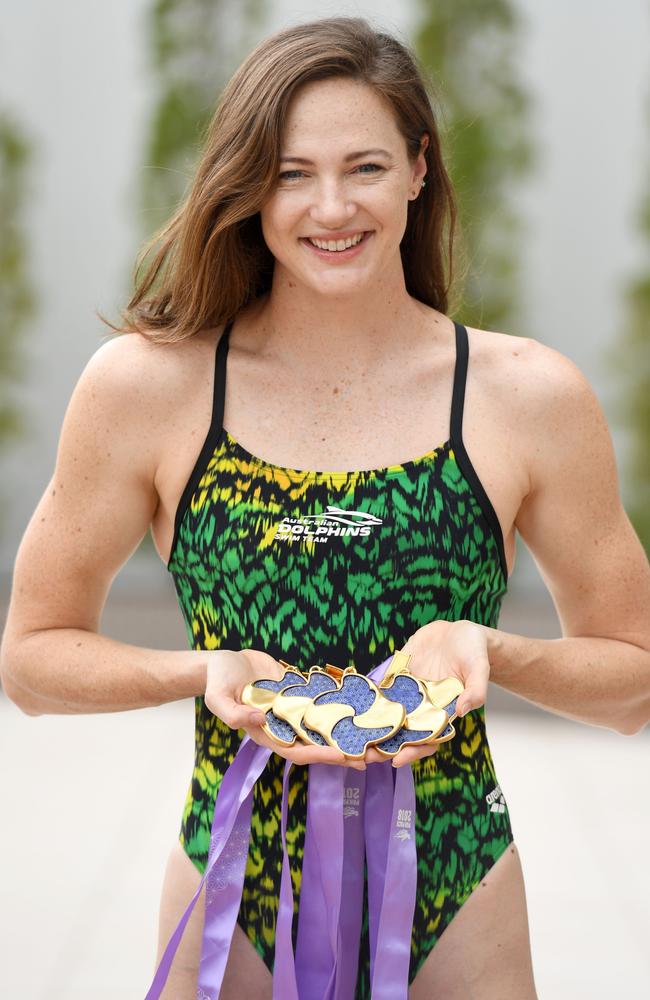
She is clear she never experienced any pressure from her coach, but it still left an impact.
“During my really formative years, it was skinniest is best,” Campbell says. “I would see other coaches discussing other athletes, saying ‘so-and-so’s come back from a break – geez, she’s looking heavy’.
“I can remember girls getting told to eat off smaller plates and open discussion around what skinfolds were, and girls having to weigh themselves on pool deck in front of other people.”
The focus on her body became overwhelming and at its peak, at 18 or 19, she fell into a spiral of self loathing and disordered eating. “When things started to get out of control, I would reach for something that I could control, and my food consumption is the thing that I can control the most,” she says. “Looking at me, you wouldn’t have said I was unhealthy.
“I kept a diary at that time, and I used to write how many calories I had consumed. And if it was a good day, it was around the 1000 calories, and that was the definition of my day; a good day or bad day was how controlled I had been.
“If I gave in to the hunger, if I had a treat, then that was really bad.”
Campbell has been on a long journey since to shift her mindset to live a healthy life. “If I am struggling with other things in life, my instinct and desire to control what I eat comes back. But I recognise it and I’m like ‘you need more than a carrot for dinner’,” she says. Campbell is grateful to be part of the changing conversation focusing on what women’s bodies can do, not what they look like.
It’s the story she’s been telling her whole career, and the legacy she built her life around. “I always wanted to find where my absolute limits were,” she says, then smiles. “I feel really lucky that I was able to find out.”
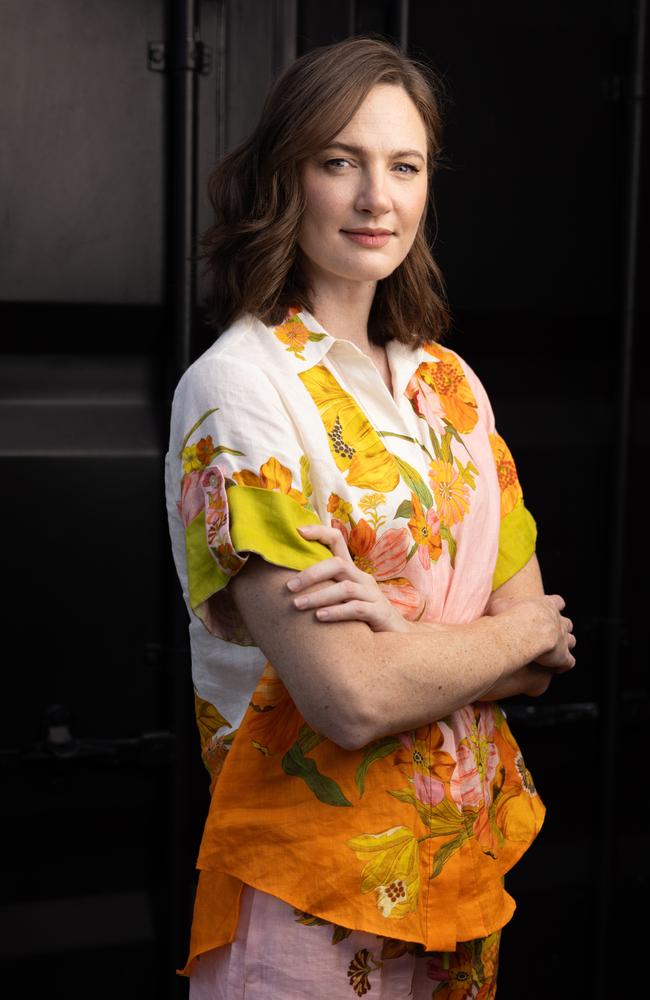
Campbell has made all kinds of discoveries lately. Some small, like realising people exercise out of enjoyment. “Did you know you could do that – wild!” she laughs. Others have been more profound, like learning who she is.
“I am finding out what my body actually looks like for the first time in my adult life,” Campbell says. “It has been quite confronting seeing it change. I’m seeing it shrink in some areas, I’m losing muscle, and then I’m seeing it spread and soften in other areas.”
It is all part of figuring out her new normal and, so far, she’s enjoying the ride.
“I’m more creative. I am more adventurous – too adventurous,” Campbell says, looking at her ACL injury. “I feel like I’m a better partner, better friend, and … a better sister.” When she speaks of her parents, Jenny and Eric, and her siblings Bronte, 30, Jessica, 29, Hamish, 26, and Abigail, 23, it’s with heartfelt love. They have given her perspective.
“Obviously sport is an incredibly intense world and bubble to be in, but I also see that there are way more intense things in life.”
“My brother has very severe cerebral palsy and his health has been very compromised in the past couple of years.”
She admires her parents for navigating being her brother’s full-time carers, and for supporting her dreams, and those of her sister and fellow Olympian Bronte.
They were dreams that started modestly. Campbell and her siblings, except Abigail, were born in Malawi, Africa, where they were taught to swim in their backyard pool by their mum, a former synchronised swimmer.
In 2001, the family moved to Brisbane for a better life and joined the Indooroopilly Swim Club to make friends. This opened the eyes of Cate and Bronte, who is now also a four-time Olympian. The sisters specialised in the same events, the 50m and 100m freestyle, forging one of the most unusual rivalries in Australian sport.
Campbell speaks of her sister with deep love and inspiration, yet with classic sibling banter. “I was older. I got into sprint freestyle first – she could’ve done something else,” Campbell laughs.
But it was the younger Bronte who first had the dream to become a swimmer, admits Campbell, after watching the Sydney Olympics in 2000.
“She very early on identified that this was what she wanted to do, and it wasn’t until I was watching her excelling at swimming and bringing home medals and age championship trophies that I was like, ‘Actually, that’d be really cool if I could win some of them for myself’,” Campbell says.
They have been each other’s greatest companions but it’s taken work to keep their sisterly bond intact, with Campbell saying their secret was to have one rule: to celebrate or commiserate separately.
“It gives the person who has succeeded a chance to be deliriously happy, to exist in the glow of that moment, without them having to dim their emotions … and for the person who hasn’t done as well, allowing them to be angry, to be frustrated, to be hurt, without having to downplay the pain of that emotion.”
They’ve always been known as a duo, “The Campbell Sisters”, but Campbell beams at the thought of now being just sisters. “I would say we have a much better relationship when we are not competing against each other,” she says.
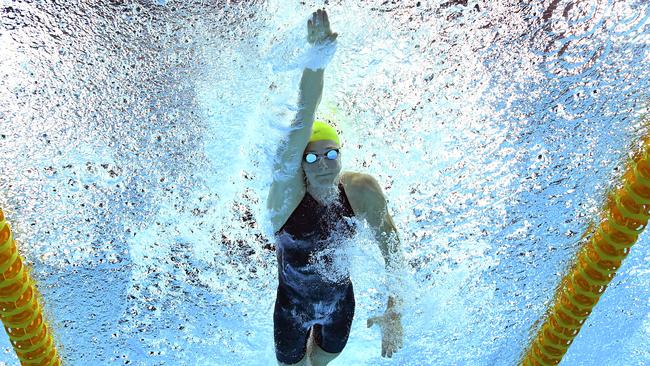
Bronte is still swimming competitively but has already launched a high-performance clothing business, Earthletica Activewear. It’s something Campbell jokes she has no interest in doing.
“You stay in your lane and I’ll stay in my lane – that pun is intended,” she says.
“But we are actually finding that we enjoy spending time together and being collaborative, and there are other things that we can now pursue together.”
Finding out who she is without swimming is why, she says, the idea of motherhood is not in her immediate future.
“I want to establish an identity before I start bringing the idea of children into the picture,” she says. “I’m asking myself, for the first time ever, ‘What do I want and what makes me happy?’.”
It’s watching Muster Dogs on TV; planning a life by the ocean as she renovates a house with Kerr on the Sunshine Coast; and getting a dog.
“I have no desire to have an extraordinary life any more,” Campbell says. “It’s now about finding the little joys and enjoying the little things. There’s so much joy to be had in life if you just look for it. Cheers to the ordinary.”





